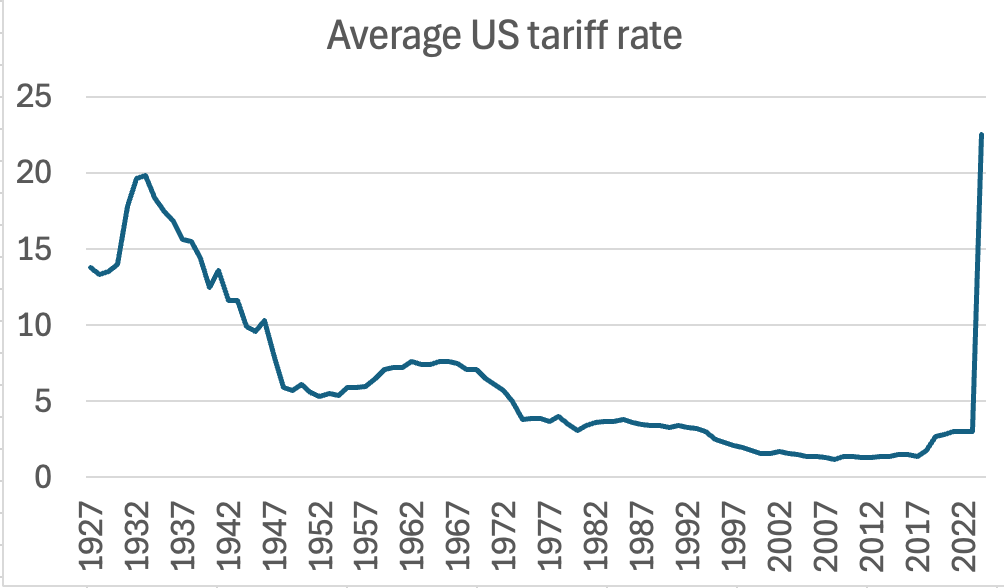Federal Circuit en banc holds that Trump’s tariffs are not authorized by Congress

A 7-4 vote, not along strict party lines:
A federal appeals court late Friday struck down the Trump administration’s signature tariffs, finding that the president had gone too far in his use of emergency powers to rewrite U.S. trade policy.
The 7-4 ruling from the U.S. Court of Appeals for the Federal Circuit upheld a lower-court decision that undercuts a core tenet of President Trump’s economic agenda. The majority found the president overstepped his authority under a 1977 law known as the International Emergency Economic Powers Act, or Ieepa.
The decision is the biggest blow yet to one of the signature policies of Trump’s second term. The judges, however, allowed the tariffs to remain in place through mid-October to allow the parties to ask the Supreme Court to take up the appeal.
The levies voided by the decision include baseline tariffs of 10% on virtually all countries, steeper tariffs on countries the administration considers bad actors on trade and an additional set of tariffs on Canada, China and Mexico.
Trump announced the worldwide “Liberation Day” tariffs in April. The 10% baseline tariffs went into effect soon after, although Trump paused the steeper, so-called reciprocal tariffs to allow for negotiations on trade deals. The administration is now moving ahead with reciprocal tariffs on scores of countries.
The Trump administration said Ieepa gave the president the power to use tariffs broadly to regulate imports during a national emergency, invoking the trade deficit among other issues. It acknowledged, however, that no previous president had ever used Ieepa in a similar fashion.
The per curiam majority’s holding is that IEEPA does not authorize tariffs as broad and permanent as the ones Trump has imposed. A concurring opinion joined by four judges holds that IEEPA does not authorize any tariffs. The heart of the opinion for the Court starts at page 30 — if “major questions” doctrine was a real thing this would not even be a close case, although I don’t think it’s necessary to hold that the tariffs exceed the scope of the statute.
Do I think the Supreme Court will uphold this opinion? I do not. Do I think “major questions” doctrine is anything but a “get out of statutory text that authorizes policy outcomes we don’t like” card? I definitely do not. But that doesn’t mean this decision is not sound.
